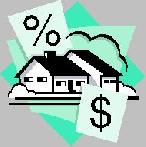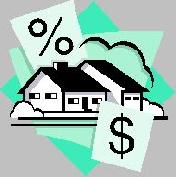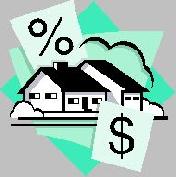
 |
|
| Financial Terms | |
| trade-off theory |
|
Information about financial, finance, business, accounting, payroll, inventory, investment, money, inventory control, stock trading, financial advisor, tax advisor, credit.
Main Page: finance, tax advisor, stock trading, financial, financial advisor, money, business, investment, Also see related: property, financing, homebuying, insurance, home insurance, mortgage, home, homes, condo, |
Definition of trade-off theory
trade-off theoryDebt levels are chosen to balance interest tax shields against the costs of financial distress.
Related Terms:Agency theoryThe analysis of principal-agent relationships, wherein one person, an agent, acts on behalf of Arbitrage Pricing Theory (APT)An alternative model to the capital asset pricing model developed by Balance of tradeNet flow of goods (exports minus imports) between countries. Basket tradesRelated: Program trades. Block tradeA large trading order, defined on the New York Stock Exchange as an order that consists of Bubble theorySecurity prices sometimes move wildly above their true values. Counter tradeThe exchange of goods for other goods rather than for cash; barter.  Flat trades1) A bond in default trades flat; that is, the price quoted covers both principal and unpaid, Floor traderA member who generally trades only for his own account, for an account controlled by him or Forward tradeA transaction in which the settlement will occur on a specified date in the future at a price Informationless tradestrades that are the result of either a reallocation of wealth or an implementation of an Information-motivated tradestrades in which an investor believes he or she possesses pertinent Liquidity theory of the term structureA biased expectations theory that asserts that the implied forward Local expectations theoryA form of the pure expectations theory which suggests that the returns on bonds Market segmentation theory or preferred habitat theoryA biased expectations theory that asserts that the Modern portfolio theoryPrinciples underlying the analysis and evaluation of rational portfolio choices  Normal backwardation theoryHolds that the futures price will be bid down to a level below the expected Posttrade benchmarksPrices after the decision to trade. Preferred habitat theoryA biased expectations theory that believes the term structure reflects the Pre-trade benchmarksPrices occurring before or at the decision to trade. Program tradesAlso called basket trades, orders requiring the execution of trades in a large number of Publicly traded assetsAssets that can be traded in a public market, such as the stock market. Pure expectations theoryA theory that asserts that the forward rates exclusively represent the expected Registered traderA member of the exchange who executes frequent trades for his or her own account. Reversing tradeEntering the opposite side of a currently held futures position to close out the position. Spot tradeThe purchase and sale of a foreign currency, commodity, or other item for immediate delivery. Static theory of capital structuretheory that the firm's capital structure is determined by a trade-off of the  Terms of tradeThe weighted average of a nation's export prices relative to its import prices. Thinly tradedInfrequently traded. TradeA verbal (or electronic) transaction involving one party buying a security from another party. Once a Trade acceptanceWritten demand that has been accepted by an industrial company to pay a given sum at a future date. Trade creditCredit granted by a firm to another firm for the purchase of goods or services. Trade dateIn an interest rate swap, the date that the counterparties commit to the swap. Also, the date on Trade debtAccounts payable. Trade draftA draft addressed to a commercial enterprise. See:draft. Trade on top oftrade at a narrow or no spread in basis points relative to some other bond yield, usually Trade houseA firm which deals in actual commodities. TradersPersons who take positions in securities and their derivatives with the objective of making profits. Uptick tradeRelated:Tick-test rules North American Free Trade Agreement (NAFTA)an agreement among Canada, Mexico, and the United States establishing the North American Free trade Zone, with a resulting reduction in trade barriers theory of constraints (TOC)a method of analyzing the bottlenecks World Trade Organization (WTO)the arbiter of global trade that was created in 1995 under the General Agreement on Tariffs and trade; each signatory country has one expectations theory of exchange ratestheory that expected spot exchange rate equals the forward rate. pecking order theoryFirms prefer to issue debt rather than equity if internal finance is insufficient. random walk theorySecurity prices change randomly, with no predictable trends or patterns. Balance of Merchandise TradeThe difference between exports and imports of goods. Balance of TradeSee balance of merchandise trade. Free TradeThe absence of any government restrictions, such as tariffs or quotas, on imports or exports. Quantity Theory of Moneytheory that velocity is constant, and so a change in money supply will change nominal income by the same percentage. Formalized by the equation Mv = PQ. Real Business Cycle TheoryBelief that business cycles arise from real shocks to the economy, such as technology advances and natural resource discoveries, and have little to do with monetary policy. Terms of TradeThe quantity of imports that can be obtained for a unit of exports, measured by the ratio of an export price index to an import price index. Trade DeficitDeficit on the balance of merchandise trade. Trade LoadingA term used for channel stuffing in the domestic tobacco industry. J-curvetheory that says a country's trade deficit will initially worsen after its currency depreciates because Related to : financial, finance, business, accounting, payroll, inventory, investment, money, inventory control, stock trading, financial advisor, tax advisor, credit. |